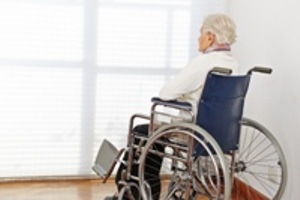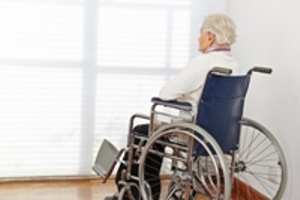
Nursing homes are a place where the elderly and seniors should feel safe. Unfortunately, reports of abuse to the residents of nursing homes is not uncommon. According to an estimate by the Centers for Disease Control and Prevention (CDC), there are more than 16,000 nursing homes operating in the United States, and almost two million people aged 65 or older are currently residents. As the number of residents increase, it may result in the elders and seniors not receiving the high level of care that they deserve.
Although a few residents are neglected, many others become victims of nursing home abuse by caretakers and other staff members. Nursing home abuse can take a number of forms.
Physical Abuse:
Physical abuse is the use of physical force to cause injury, such as hitting, beating, pushing, shoving, shaking, slapping, kicking, pinching, and burning.
Withholding of prescribed medications, physical restraints, force-feeding, and physical punishment of any kind also comes under physical abuse.
Some common signs of physical abuse:
- Unexplained bruises, black eyes, lacerations, and rope marks
- Unexplained bone fractures, broken bones, and skull fractures
- Sudden weight loss
- Dehydration or malnutrition
- Sudden change in behavior
Sexual Abuse:
Non-consensual sexual contact of any kind with an elderly person can be termed as sexual abuse. It can include unwanted touching, sexual assault or battery, such as rape, sodomy, coerced nudity, and sexually explicit photographing.
Some common signs of sexual abuse:
- Unexplained injury or bruises around genital area or breasts
- Diagnoses of sexually transmitted diseases (STD)
- Stained or torn underclothing or bedding
- Unexplained vaginal bleeding
Emotional/Psychological Abuse:
Emotional/psychological abuse is any deliberate causing of anguish, pain, or distress through verbal or nonverbal acts. A few examples of emotional/psychological abuse are treating an older person like an infant; isolating them from his or her family, friends, or regular activities; and giving them the “silent treatment.” This type of abuse may also include verbal assaults, insults, threats, intimidation, humiliation, and harassment.
Some common signs of emotional/psychological abuse:
- Being emotionally upset or agitated
- Being non-communicative or non-responsive
- Showing unusual behavior usually attributed to dementia
Financial abuse:
Financial abuse is the illegal or improper use of an elder’s property, money, or assets. This can include cashing an elderly person’s checks without authorization or permission; forging a signature; misusing or stealing an older person’s money or possessions; coercing or deceiving an older person into signing any document; and the improper use of guardianship, or power of attorney.
Some common signs of financial abuse:
- Sudden and unexpected changes to will or powers of attorney
- Suspicious inclusion of additional beneficiaries to life insurance policies
- Disappearance of personal property or money
- Unexpected withdrawals of account funds and charges to credit cards
- Large amount of unpaid bills
Neglect:
As a caretaker or staff member in a nursing home, the failure or refusal to fulfill any obligation or duties to an elder can be termed as neglect. In other words, the failure to provide an elderly person with basic life necessities such as food, water, clothing, shelter, personal hygiene, medicine, comfort, personal safety, and other essentials are considered as neglect.
Some common signs of neglect:
- Showing signs of dehydration, malnutrition
- Untreated bed sores, and poor personal hygiene
- Unattended or untreated health problems
- Hazardous or unsafe living conditions/arrangements
Abandonment:
Abandonment is the desertion of an elderly person by an individual who is responsible for providing care, or by a person who has physical custody.
Some common signs of abandonment:
- The desertion of an elder at a hospital or a nursing facility
- The desertion of an elder at a shopping center or any other public location
Contact nursing home abuse lawyer at Kantrowitz, Goldhamer & Graifman, P.C.!
If your loved one has been a victim of nursing home abuse, contact nursing home abuse lawyers at Kantrowitz, Goldhamer & Graifman, P.C. We are committed to protecting your loved one and obtaining financial compensation for the injuries. Call us at (800) 711-5258/800-711-5258 for a consultation with one of our nursing home abuse lawyers. You can also email at [email protected].

